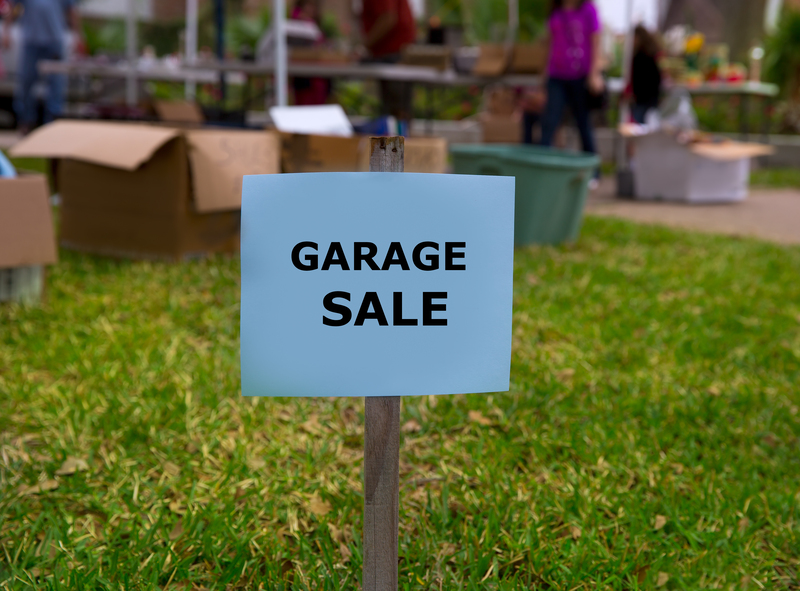Clutter Removal and Hoarder Clean Up That Transforms Your Living Experience
Are you feeling overwhelmed by the clutter in your living space? Is your home not reflecting the calm, functional environment you desire? You are not alone. Many people struggle with excess belongings and disorganization, and for those facing hoarding tendencies, the challenge can feel insurmountable. Clutter removal and hoarder clean up are transformative processes that can dramatically improve your quality of life. In this comprehensive guide, we'll explore the benefits, methods, and long-lasting impacts of decluttering and tackling hoarding cleanup.

Why Clutter Builds Up: Understanding the Roots
Before diving into clutter removal solutions, it's important to understand why clutter happens.
- Emotional Attachment: Items often carry memories or sentimental value, making it difficult to let go.
- Busy Lifestyles: Our fast-paced lives leave little time for organizing or maintaining order.
- Acquisition Habits: Frequent shopping or accumulating 'just in case' items leads to space being overtaken.
- Mental Health: Conditions like anxiety, depression, or ADHD can make managing clutter even harder.
- Family and Shared Spaces: Multiple people in shared spaces can create complex clutter dynamics.
The Impact of Clutter on Your Life
*Clutter doesn't just fill your home; it fills your mind.* Multiple studies indicate that living in a disorganized space can negatively impact your mood, focus, and even physical well-being. Here's how:
- Stress and Anxiety: Excess belongings can create constant visual reminders of work undone, increasing anxiety levels.
- Social Isolation: Embarrassment about a cluttered home may keep you from inviting guests over.
- Inefficiency: It takes longer to find things, making everyday tasks more time-consuming and frustrating.
- Health Hazards: Mold, dust, pest infestations, and increased risk of trips and falls can arise in cluttered or hoarded environments.
What is Hoarder Clean Up?
Hoarder clean up is a specialized service designed to help individuals or families who face severe accumulation of items, often causing unsafe living conditions. It involves more than just tidying; it's about restoring a space to health and functionality, both physically and emotionally.
Key Elements of Hoarder Clean Up:
- Assessment: Understanding the nature and scope of the hoarding situation.
- Sorting and Disposal: Determining what to keep, donate, recycle, or discard.
- Deep Cleaning: Addressing sanitation issues that may have developed.
- Repair and Restoration: Making improvements to restore safety and comfort.
- Emotional Support: Respectful handling and compassionate communication throughout the process.
The Complete Guide to Clutter Removal
Let's explore a step-by-step approach to smart, sustainable clutter removal--whether you're addressing everyday mess or severe hoarding situations.
1. Set Your Goals
Begin by clarifying what you want to achieve. Is your goal to reclaim a room, prepare for a move, or create a more peaceful atmosphere? Set clear, realistic goals for your decluttering project.
2. Assess the Space
Walk through your home and note the areas with the highest concentration of clutter. Hoarder clean up experts recommend tackling one room at a time to avoid overwhelm and track progress.
3. Gather Your Supplies
Preparation makes the process smoother. You'll need:
- Sturdy garbage bags or bins
- Boxes for donations, recycling, and items to keep
- Cleaning supplies (gloves, disinfectants, dust masks)
- Personal protective equipment for hazardous materials, as needed
4. Sort Methodically
Sorting is the crux of clutter removal. Use these tips for effective sorting:
- Create clear "keep," "donate/sell," "recycle," and "trash" categories.
- Invite objectivity: Ask yourself, Have I used this in the past year?
- Apply the "one touch" rule--handle each item only once to avoid indecision.
5. Disposal and Donation
Many people find it easier to let go when they know their items will have a second life. Research local charities and recycling centers to responsibly dispose of unwanted belongings.
6. Clean and Sanitize
After clearing the clutter, give the space a thorough clean. This creates a healthful environment and marks a fresh start.
7. Organize What Remains
With less to manage, organization becomes easier. Invest in storage solutions that suit your needs--shelving, baskets, clear bins--and label everything. *A place for everything, and everything in its place!*
8. Prevent Re-Cluttering
Establish a regular tidying routine, adopt mindful purchasing habits, and periodically reassess your space to maintain benefits long-term.
DIY vs. Professional Hoarder Clean Up Services
For mild to moderate clutter, many people find success with self-guided efforts and support from family or friends. However, hoarder cleaning services offer crucial advantages in severe cases:
- Expertise: Professionals are trained to handle complicated, high-risk situations, including biohazards.
- Emotional Sensitivity: Compassionate support can ease the stress of letting go.
- Efficiency: Teams work faster and more thoroughly than most individuals can alone.
- Follow-Up: Some services offer post-cleanup checks and organization advice to prevent relapse.
The Psychological Aspect: Compassion and Progress
Removing clutter, especially after years of accumulation, is emotionally challenging. *Be kind to yourself,* or to loved ones involved in the hoarder clean up process. Consider these steps to support healthy progress:
- Acknowledge Feelings: The attachment to items is real and valid. Recognize the challenge of letting go.
- Go Slow: Take breaks and tackle one area at a time.
- Seek Support: Therapists specializing in hoarding disorder can help with underlying causes.
- Celebarate Milestones: Small victories are worth celebrating on the decluttering journey!
The Health and Safety Benefits of Decluttering and Hoarder Clean Up
Clutter is not just a visual nuisance; it's a health risk. Proper hoarder clean up services can address:
- Fire Hazards: Piles of paper, clothing, or trash fuel flames and can block exits.
- Infestations: Food scraps and crowded spaces attract pests such as mice and cockroaches.
- Mold and Mildew: Damp areas hidden by clutter develop mold, threatening respiratory health.
- Trip and Fall Risks: Clear pathways reduce the chance of accidents, especially for seniors.
- Structural Damage: Overloaded rooms strain floors and may damage the property over time.
Sustaining a Clutter-Free, Transformed Living Experience
Congratulations, you've reclaimed your home! Now, how do you keep it this way? Here's how to ensure your space remains clear and peaceful for the long term:
- Adopt Minimalism: Embrace "less is more" as a guiding principle. Before acquiring new items, ask if they add true value.
- Routine Maintenance: Set aside a few minutes daily or weekly to tidy high-traffic zones, preventing buildup before it starts.
- Annual Reviews: Once or twice a year, reassess your belongings and repeat the decluttering process for ongoing harmony.
- Involve the Whole Household: Encourage all residents to contribute to maintaining order, creating a supportive, shared goal.
- Stay Mindful: Practice conscious consumption and be aware of the patterns that lead to clutter reaccumulation.
Frequently Asked Questions About Clutter Removal and Hoarder Clean Up
1. How do I know if I need professional hoarder clean up services?
If your clutter is causing safety risks (blocked exits, biohazards, pests), you feel overwhelmed by the scale of the problem, or emotional challenges get in the way of progress, professional intervention is recommended.
2. What should I look for in a clutter removal company?
Look for a provider with experience, positive reviews, proper licensing/insurance, clear pricing, and a respectful approach to sensitive situations. Ask about their process and after-care support.
3. Can decluttering really affect my mental health?
Absolutely. Multiple studies correlate tidy, organized environments with decreased stress, improved mood, and better sleep. Removing clutter creates a sense of control and peace.
4. How soon can I see benefits after clutter removal?
Benefits are often immediate--think clear walkways, accessible surfaces, and reduced anxiety. Over time, you'll also notice improved focus, efficiency, and greater overall contentment in your living space.
5. Is hoarder clean up confidential?
Reputable companies protect client privacy and handle all jobs with discretion and empathy.

Final Thoughts: A New Chapter Begins
Clutter removal and hoarder clean up are more than chores--they're life-changing opportunities. Whether you tackle the task on your own or enlist professional hoarding cleanup services, remember that every item cleared makes room for new experiences, peace, and clarity. *A transformed home equals a transformed life.*
Ready for your fresh start? Start small, stay consistent, and step confidently into a clutter-free living experience.
Resources for Clutter Removal and Hoarder Clean Up
- National Association of Productivity & Organizing Professionals: https://www.napo.net/
- Hoarding Cleanup Support: https://hoardingcleanup.com/
- Find a local charity accepting donations: https://www.goodwill.org/
- CDC Guidelines on Healthy Homes: https://www.cdc.gov/healthyhomes/
Begin your transformation today--your healthier, happier living space awaits!
